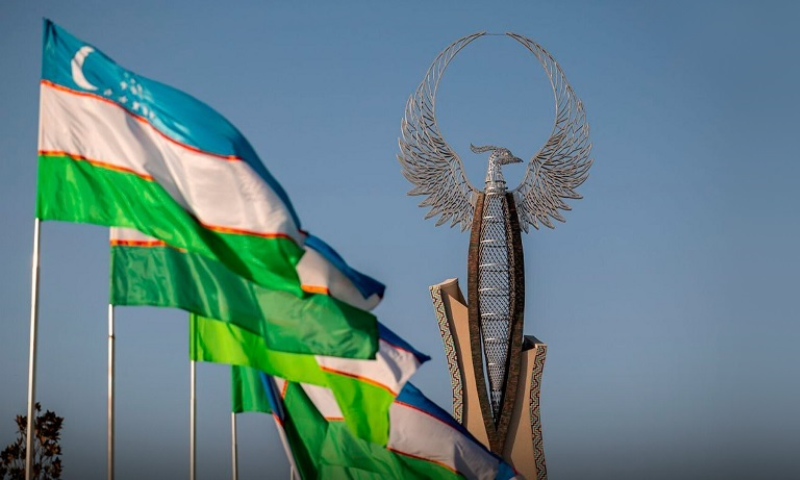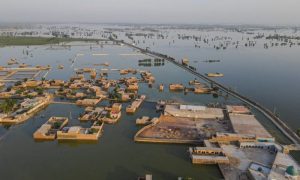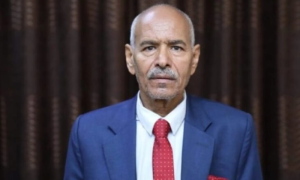TASHKENT: It is not an exaggeration to say that in the historical conditions where humanity is going through a difficult period, where contradictions and conflicts are intensifying and seriously undermining stability, in the multi-ethnic New Uzbekistan, human dignity and the interests of the people are recognized as the highest values, and in this regard, it is becoming an example and model for many countries of the world. Prominent expert Dr Khudoyberdi Khaknazarov has expressed these views in an article.
Because sustainable development can be achieved first of all by valuing and honoring people, creating conditions for the population to live well today, and realizing the high trust and responsibility of the population for the future.
Abdulla Awlani, a renowned scholar, described humanity’s central role by stating, “…the purpose of the creation of the universe is man. Man is the glory and honor of all existence. All creation must serve man: man is its master. Because man has a mind. He acquires knowledge with the help of this mind, and rules the world thanks to his knowledge.”
In line with this philosophy, Uzbekistan has been systematically implementing measures to enhance citizen engagement in state management and to support human rights and interests. Notably, recent reforms have seen an active participation of citizens in state administration, particularly in the adoption of significant documents. The 2023 adoption of the “people’s constitution,” which incorporated over 220,000 proposals from various segments of the population, reflects this inclusive approach. The updated constitution saw its articles increase from 128 to 155, and the norms from 275 to 434, emphasizing a thorough consideration of modern threats and economic stability.
President of Uzbekistan emphasized the constitution as a “public dictionary” ensuring that ongoing reforms towards establishing New Uzbekistan remain irreversible. Citizens’ active participation is further evidenced by the portal for discussing regulatory legal documents, which received 77,731 proposals for 25,283 draft documents in a year.
Gender equality has also seen significant strides, with women’s participation in state management rising from 27% to 35%, and women now comprising 32% of the Legislative Chamber and 25% of the Senate. The number of businesswomen has doubled, and over 205,000 women have started their own businesses. These achievements have placed Uzbekistan among the top five fastest-developing countries in gender equality according to the World Bank index and within the top 20 for open gender data.
Strategic reforms have been meticulously planned and implemented in Uzbekistan. The 2017-2021 Strategy of Actions on five priority directions has significantly contributed to the state’s and society’s comprehensive development. This includes improvements in governance, legal reforms, economic development, social sector advancements, and fostering security and inter-ethnic harmony. The economic growth rates of 4.4% in 2017, 5.4% in 2018, and 5.7% in 2019 reflect the success of these reforms.
The recently adopted “Uzbekistan-2030” strategy builds on past experiences and public discussions, outlining strategic goals for the next seven years. This 100-point strategy aims to double the country’s GDP to 160 billion dollars by 2030, moving Uzbekistan into the ranks of upper-middle-income countries.
Healthcare has received substantial attention, with funding increasing from 5.9 trillion soums to 33.5 trillion soums over the past seven years. Modern equipment and new hospital constructions have been prioritized. Social support systems like “Temir daftar,” “Ayollar daftar,” and “Yoshlar daftar” address specific needs, ensuring timely and effective problem-solving for families, women, and youth.
Virtual and public receptions of the President have addressed over 5 million appeals, with satisfaction levels rising from 47.5% in 2017 to 86.7% in 2021. Education and patriotism are emphasized to counter increasing ideological conflicts, ensuring that youth are brought up with a strong national identity and values.
Uzbekistan’s foreign policy, based on cooperation and mutual support, has seen significant progress, including resolving long-standing border issues with Kyrgyzstan. Diplomatic relations have been established with 131 countries, and strategic partnerships are being strengthened. The “Concept of Foreign Political Activities” law outlines the future direction of Uzbekistan’s international relations, focusing on regional peace, strategic partnerships, and multilateral relations.
In short, New Uzbekistan is advancing towards sustainable development through systematic reforms and a commitment to human rights, economic growth, and social well-being. The ongoing efforts reflect a deep responsibility to present and future generations, ensuring that human life, freedom, and dignity remain paramount.


























